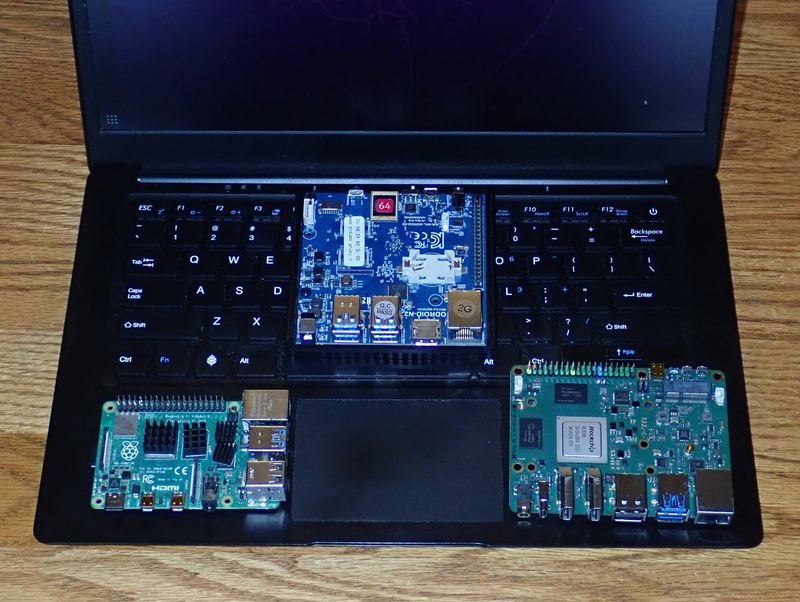Well, 2022 is coming to an end, and (rather ahead of schedule for me), that means I’m putting together some new years resolutions. This year, they’re a bit more interesting than the usual, because they consist largely of, “To the extent that I am reasonably able, opt out of consumer tech culture.” That includes a range of things, and I’ll go over them here, with the goal that at least some people might be inspired to join me in tilting at these particular windmills, and reducing some of the data collected, aggregated, and used against them in 2023.

In a nutshell: Radically less internet use and engagement, a more comprehensively nerfed cell phone, dropping back to cash as much as possible, and a serious re-focus on analog human interaction and community.
This doesn’t mean the blog is ending. This, and the few scattered services I run in proximity to it, will remain quite alive and active - I intend to keep running my server! I haven’t run out of stuff to say yet, and I don’t see myself doing so any time in the near future either!
Former Experiments
For a while now, I’ve generally tried to restrict my internet use during Lent - it’s been a good time to back off, take some time, and just pull the crap out. Coming back, I tend to use the internet less, having separated from the draw of the various forums and social media-ish things (what little shadow of that I use) - but I’ve found that, with time, my use starts creeping back up to where it was before. I’ll respond to a forum thread, check back in more frequently for updates, and after a few months of that cycle, I’m back to something resembling a regular posting schedule. Unfortunately, the change isn’t lasting - and I’ve tried this experiment enough that I know the pattern I’ll slip back into. It’s less than it used to be, but… still. I don’t like that. So, at this point in time, after quite a bit of evaluation, I’ve decided that I simply need to stop engaging so much - I want to “put the internet back in a box,” which I’ll discuss in more detail a bit later.

The Rise of AI Text Generation
Another trend I’ve been watching lately with some concern, and one that’s recently “gone big,” is the state of AI text generation - the various GPT models come to mind here. I don’t have enough experience to speak on the image generation stuff, but I’ve already started seeing a lot of “GPT Generated Comments” places, either labeled or not. They’re a weird, bland, generic sort of “internet-HR-speak” that doesn’t take any particularly concrete positions - as expected, being more or less an average of their training data (the internet).

But the results are bland, non-offensive, and seem reasonably enough worded that I fully expect them to get casually used for karma-farming, either directly, or with minor modifications. I prefer to use various forums to interact with other humans, sharp edges included, and unfortunately, it seems rather less likely that I’ll be interacting with humans going forward - the eventual forum is likely to be AI chatbots interacting with AI chatbots, with only a few suckers left wasting their time in the mix.
Except… you’ve probably already run into this sort of text. It’s what makes up most front page search results when you ask a detailed question anymore (at least on the mainline search engines) - some bland, generic, “mostly not wrong” responses that are constantly being freshly generated because search engines reward newness. I’m not sure if they’re AI text spam, or just “poorly paid gig worker surface level articles,” since there’s not much difference between the two. But they’re not interesting, informative, or useful. They’re simply freshly generated, “novel” to a search engine, inoffensive clickbait - of course, loaded with ads and affiliate links.
Some ChatGPT Examples
If you’ve not read this sort of text, here’s an example coversation with ChatGPT. It can spout “surface level understanding” well enough, though I’ll point out a few cases where it’s claiming A and Not-A right after each other. But pay attention to the style. It’s exceedingly bland. It’s filled with weasel words, and always leaves an “out” when it makes some sort of claim. And it reads very, very similarly to a lot of that which the internet has been filled with…
Explain to me why someone should stop using the internet regularly.
There are a few reasons why someone may want to consider reducing their use of the internet. One reason is that excessive internet use can lead to a lack of productivity. For example, if you spend too much time browsing social media or playing video games, you may find that you are not getting as much work done as you would like. Additionally, excessive internet use can lead to a lack of social interaction, which can have negative effects on your mental health. Finally, too much time spent on the internet can lead to a sedentary lifestyle, which can increase your risk of developing health problems such as obesity and heart disease.
Why should I use the internet more?
There are many benefits to using the internet regularly. First and foremost, the internet is a vast source of information and knowledge. With just a few clicks, you can access virtually any information you need on almost any topic. Additionally, the internet allows you to stay connected with friends and family, even if they are far away. You can use the internet to communicate with them through email, social media, or video chat. Finally, the internet offers a wide variety of entertainment options, such as music, movies, and games, which can help you relax and unwind after a long day. Overall, the internet is a valuable tool that can improve your quality of life in many ways.
It’s not wrong here, just very bland and inoffensive. But what about something a bit more technical?
How can I optimize a lead acid battery charging routine for battery longevity?
To optimize a lead acid battery charging routine for battery longevity, there are several steps you can take. First, make sure to use a charger specifically designed for lead acid batteries. Using the wrong type of charger can damage the battery and reduce its lifespan. Second, avoid overcharging the battery. Most lead acid batteries will automatically stop charging when they are full, but it’s still a good idea to monitor the charging process and avoid leaving the battery on the charger for extended periods of time. Finally, avoid deep discharging the battery. Lead acid batteries can be damaged if they are discharged too deeply, so it’s important to recharge them before they reach a critically low level. By following these steps, you can help ensure that your lead acid battery has a long and healthy life.
Ok… again, it’s not entirely wrong, though neither is it particularly useful, insightful, or helpful. And it’s got a range of technical problems. Lead acid batteries don’t automatically stop charging, though some charging profiles more or less let them draw what they want. A lead acid battery, on float charge, will still draw some current - and, actually, for lead acid, you want the battery on the charger for an extended period of time if it’s a sane charger. It’s called a “battery tender,” and it dramatically improves the longevity of infrequently used lead acid batteries by compensating for self discharge. I have one on my truck as it’s running less often these days, and I use them for the motorcycles too. You don’t want a high voltage for long periods, but “long term float” is the right answer here. It’s correct enough on deep discharge, though.
More, immediately after:
How does lead acid battery charging differ from lithium battery charging profiles?
Lead acid batteries and lithium batteries are two different types of rechargeable batteries, and they have some differences in their charging requirements. One of the main differences is that lead acid batteries require a lower charging voltage than lithium batteries. Lead acid batteries typically require a charging voltage of around 2.4 volts per cell, while lithium batteries typically require a charging voltage of around 4.2 volt per cell. Additionally, lead acid batteries have a higher self-discharge rate than lithium batteries, so they need to be charged more frequently to maintain their performance. Finally, lead acid batteries are more sensitive to overcharging and deep discharging than lithium batteries, so it’s important to avoid these charging mistakes with lead acid batteries to extend their lifespan.
Again, surface level correct, but with some significant errors - I’d argue that lithium batteries are an awful lot more sensitive to overcharging, because a flooded lead acid battery, overcharged, will just boil off electrolyte mostly harmlessly (at least if you have somewhere to vent the generated hydrogen). An overcharged lithium battery will enter thermal runaway and vent, lighting everything else around it on fire - which is the sort of thing best avoided at all costs.
And it goes on. But if you start seeing a lot more of this sort of vague, authoritative-sounding hedged statement around the internet, well, now you know where it’s coming from - and it’s not humans. I don’t care to spend my time interfacing with chatbots, sorry.
Surveillance Capitalism is Not Human Friendly
If you’ve not chewed through Zuboff’s book, “The Age of Surveillance Capitalism,” you really should. I’m not going to say it’s a light read, but it’s a fairly rewarding one, once you get over all the invented words. It traces out, in great detail, exactly what’s gone wrong with the modern internet - how it’s been turned into an aggressive data collection system that collects behavioral surplus, to generate prediction products. Those prediction products are sold to the actual customers of the tech company to deliver the desired content to the eyes of those predicted to be most receptive to this content - ads, behavioral manipulation, whatever. I’m sure you’re familiar with the sort of stuff delivered for money, to your eyeballs.
I simply don’t want to be part of this anymore. I’ve tried to reduce my exposure to it, I run weird OSes, disable Javascript on most domains, have a few internet exit points I use, and… why do I do it? Anymore, I’m not sure I can reasonably answer this. I spend a lot of time and effort trying to de-fang the general internet, so I can… well, not find much of value on it anymore. Even technical searches are hard to get good answers on (I play in what I call “Un-Googleable spaces” regularly - interesting, novel R&D stuff that simply hasn’t been solved before), and pale in comparison to the responses one gets on IRC for certain many values of the sort of technical questions I’m interested in.
If I can spend less time trying to work out “safer ways to use the internet” by simply not using the internet as much, this is a double time savings! I’m also trying to set a better example for my kids - I talk about the absurdity of living life staring into a bunch of colored dots, and I can do a better job of living this out in my life. A bunch of colored dots is not real life, and too often we confuse this.

Life is Finite
One may also, reasonably enough, consider this to be something of a midlife re-evaluation. Do I really want to spend more time arguing on the internet with AIs and people who’ve been been subject to a decade or more of being persuaded to be profitable to whoever’s buying the prediction products? Well… no. Not when I think about it in those terms!
There are a lot of more interesting things one can spend time doing, and I think I’d rather spend my time doing those things! There are planes to fly, motorcycles to ride, places to visit, things to build, gardens to grow, musical instruments to learn, and I’m pretty well prone to analysis paralysis - so I’ll frequently spend more time researching things on an increasingly useless internet than it would take me to just do the thing inefficiently and start learning hands-on. I need to be better at that, and “stay off the internet and just do stuff” seems a really, really good step.

Putting the Internet Back in the Box
The big thing here is that I want to put the internet, for me, back in the box it came out of. And I mean this reasonably literally. Yes, this is one of my former computers - “Root.” Dual Pentium III 866s, 640MB RAM, a GeForce 256, and an awful lot of hard drives. This was an absolute beast by early 2000s terms, and yet today, that’s not even enough to run a watch.

The internet used to be a thing you accessed through a desktop - you went to it, usually powered it on, connected, did your thing, and then walked away from it. It didn’t follow you everywhere or log everything you said or did. I’ve been heading in this direction more and more over the years, and it’s time to just make that the default. I’m good with having a few chat apps on my phone (well, really, just Matrix and SMS/iMessage - everything else ends bridged into Matrix), but I no longer leave a browser on my phone, or much of anything else. Yeah, my home screen is boring. My kids hate it (“You don’t have any games on it? Can you install some?”). I think this is fine.
Beyond that, though… I think I need to be more careful about laptops. Wireless is one hell of a drug and whoops, there went an evening. They’re OK for portable computing, but I need to make “offline use” the default for them, with network access more of a rarity. I don’t mind typing away on a laptop, but if it’s internet connected, it’s just a big time suck.
Smartphones are Evil
I’m not sure there’s any other way to put this: Smartphones, over the last decade, have turned rancid. At this point, a standard smartphone, used in the normal way, can safely be assumed to be broadcasting your life to literally anyone who might have the slightest interest in paying for that access, with all the data collected by various apps, usually by the various third party SDKs developers embed for some reason or another. App needs location data for some reason or another, “advertising and analytics” SDKs embedded help themselves to this data, send it up for “analysis,” and then it’s aggregated, collected, sliced, diced, combined, and turns into the sort of thing that, among other groups, Anomaly Six claims as their capabilities. Just casual stuff like this…
According to audiovisual recordings of an A6 presentation reviewed by The Intercept and Tech Inquiry, the firm claims that it can track roughly 3 billion devices in real time, equivalent to a fifth of the world’s population.
Are the claims accurate? Maybe. Maybe not. But nothing about them is particularly revolutionary or unbelievable - except perhaps the scale. We know that apps “share location with third parties,” and that this includes groups who aggregate whatever they can, and share it with “partners” - who, typically, are just people who write checks, though not nearly as big as you might assume. Your average police department almost certainly subscribes to one or more of these services, so it’s not limited to huge agencies. If you don’t like that article, find any of the other companies promising the same things.
Anyway, it’s long past time to consider our pocket black mirrors the toxic evil we know they are. Strip the apps off your device, and if you must use them, use them through the browser (that offers far less in the way of background data collection). Turn off your location services. If you’ve got a new enough iOS device, enable Lockdown (disables Javascript JIT, web fonts, and a slew of other “high attack probability” interfaces you probably shouldn’t be using anyway). And turn your phone off regularly. Get in the habit. Cultivate a forgetful 80 year old’s smartphone use (just not the “sharing everything when Microsoft calls about the virus on your Apple” bits).
I’ve been in this habit for a while, and I can’t say I feel like I’m missing anything, other than the occasional phone call.
And While I’m At It, Credit Cards…
I’ve really gotten lazy about paying for things. Whip out the credit card. Cards are auto-pay every month. Problem solved.
Except, in exchange for this convenience, I’m leaving an awful lot of traces around, and I really do spend more if I’m not pulling cash out of my pocket. I’ve paid attention in the past and it’s a real effect for me.

So I’m cutting the CCs for all practical purposes (it’s alarming just how many places don’t accept cash anymore - I’m not quite sure that parking garages not accepting cash is legal as you’ve incurred a debt that you need to pay, but that’s how some are), and reverting to cash to pay for things. I’ll see how this works out and report back. I still live in a part of the country where cash is pretty standard, so I don’t expect much extra friction.
What’s Left?
Given all this, am I going to disappear entirely? Well, from many spaces on the internet, yes. But not from the internet entirely - just the parts I don’t access on my terms. I do enjoy running this blog, and I’m far from out of things to say. Beyond that, though, I do think there’s a lot of value in being able to have direct person-to-person and small group discussions on the internet - it really does beat phone trees for coordination of events (especially with cell phones and their horrid audio lag). Been there, done that.
That does not mean using big tech communication platforms, though! I want as little of my activities as possible flowing through their servers, and I’m happy to continue working with my Matrix server and bridges to help allow people in my circles to communicate without needing to go through Facebook, Google, or even Signal (the content may be encrypted, but I don’t trust their metadata protection with it all flowing into a single set of servers). Moving people off those is of value, and I’m happy to continue working with that.
All this is useful - but it all also needs to be in support, whenever possible, of gathering in person - and I’d like to expand my ability to host physical gatherings, year round, on our hill. I would far rather spend an evening with a group of 5-10 people around a campfire than spend it online - and so I’m going to focus my efforts on both enabling those gatherings and expanding what happens with them. We’ve been doing some of this recently, and it’s been wonderful. Seriously, gather around a firepit. Year round. It’s great! Yes, you can expect a long post on a Solo Stove Bonfire at some point in the future!

I’m also going to try to finish out a bunch of half-written and slightly obsolete blog posts talking about some of the other small board computers I have used and… at least tolerated. A SBC from 2-3 years ago can still be a perfectly nice little system, especially for using the internet less! You can run comms on a Pi, very easily. If you’re not using all the high data collection sites on the internet, you don’t need nearly as much compute power.
Plus, if all goes well, I might have some fun low level ARM hacking to do soon! A couple very, very cute Rock5 boards just showed up in my mailbox, and I hope to have some initial impressions on those shortly!
Join me? Tubes are for ferrets, not all our personal data!

Comments
Comments are handled on my Discourse forum - you'll need to create an account there to post comments.If you've found this post useful, insightful, or informative, why not support me on Ko-fi? And if you'd like to be notified of new posts (I post every two weeks), you can follow my blog via email! Of course, if you like RSS, I support that too.







